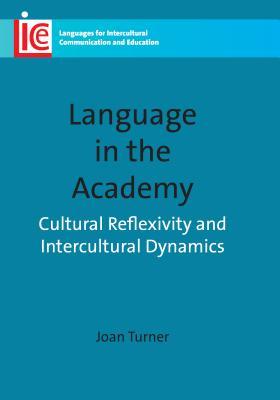
Zustellung: Mi, 30.07. - Di, 05.08.
Versand in 3-4 Wochen
VersandkostenfreiBestellen & in Filiale abholen:
This book tdiscusses why issues of language in higher education are routinely marginalised, despite the internationalisation of universities. It locates the construction of rhetorical norms and values for academic writing within wider cultural practices and power relations and observes the transformative dynamic of intercultural communication.
Inhaltsverzeichnis
Chapter One Introductory Overview Chapter Two Language, Language Pedagogies, and Intercultural Communication in Contemporary Higher Education Chapter Three Language in the Academy: The Discourse of Remediation Chapter Four Languaging in the Academy: Language as Dynamic Practice Chapter Five Occidentalist Inscription: The Historical Construction of Contemporary Representations of Language in the Academy Chapter Six Disciplining Language: Rhetorical Values and the Regulation of Academic Writing Chapter Seven Power/Knowledge and the Construction of Rhetorical Subjects Chapter Eight Subject to Confucian Rhetorical Culture Chapter Nine The Power/Knowledge Effects of the Socratic Dialogue Chapter Ten Socratic Subjects: The Western Tutor as Midwife Chapter Eleven Resisting the Tao of Talk: Verbalisation in Intercultural Context Chapter Twelve The Way of Learning: The Spatial Relations of Learning and Teaching in the Confucian/Taoist Tradition Chapter Thirteen The Discursive Dance of the Intercultural Chapter Fourteen The Critical Rhetoric of Being Critical
Mehr aus dieser Reihe
Produktdetails
Erscheinungsdatum
01. Dezember 2010
Sprache
englisch
Seitenanzahl
232
Reihe
Multilingual Matters
Autor/Autorin
Joan Turner
Verlag/Hersteller
Produktart
kartoniert
Gewicht
302 g
Größe (L/B/H)
208/146/17 mm
ISBN
9781847693211
Entdecken Sie mehr
Pressestimmen
This is a stimulating and timely book which puts language as 'cultural object' at the heart of debates about the nature and purpose of higher education in the twenty first century. Drawing on extensive scholarship and many years of teaching in UK higher education, Joan Turner turns our gaze towards the taken-for-granted assumptions about language in the academy, not least in the contemporary context of 'intercultural communication', and calls for greater reflexivity about the practices in which we- as scholars, teachers and students- engage. This book will promote much needed discussion about assumptions and ideologies surrounding language use in the academy.Theresa Lillis, The Open University, UKThis transformative treatment of the complex factors affecting language in higher education is an essential contribution to the growing field of intercultural and transnational communication. Resisting deficit discourses about students' language and entrenched "language vs. content" dichotomies, it provokes critical reflection on the role of longstanding invisible occidental assumptions and worldviews about language that permeate our assessments, pedagogy, and teaching. Drawing brilliantly from both classic and contemporary theory, Turner reinscribes language into the complex process of knowledge-making in the daily intercultural exchanges that are the mainstream of today's shifting university language interactions.Christiane Donahue, Dartmouth College, USAGiven the rapid growth in numbers of South-East Asian students in universities in New Zealand, the examination of assumptions about university language which Turner's book offers is very valuable. It is likely to be of interest to writing teachers and EAP practitioners as well as tertiary teachers of international students more generally. The book provides a fascinating discussion of the nature of modern academic language.Christine Biebricher, The University of Auckland in New Zealand Studies in Applied Linguistics, Volume 18 (1) 2012
Bewertungen
0 Bewertungen
Es wurden noch keine Bewertungen abgegeben. Schreiben Sie die erste Bewertung zu "Language in the Academy" und helfen Sie damit anderen bei der Kaufentscheidung.



















